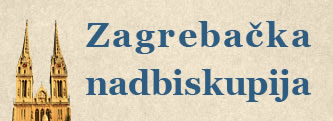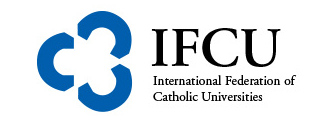Chair of Theology
About Chair of Theology
“Through research and teaching the students are educated in the various disciplines so as to become truly competent in the specific sectors in which they will devote themselves to the service of society and of the Church, but at the same time prepared to give the witness of their faith to the world.” (Ex Corde Ecclesiae, 20)
“Theology plays a particularly important role in the search for a synthesis of knowledge as well as in the dialogue between faith and reason. It serves all other disciplines in their search for meaning, not only by helping them to investigate how their discoveries will affect individuals and society but also by bringing a perspective and an orientation not contained within their own methodologies.” (Ex Corde Ecclesiae, 19)
And this is the very specific quality of theology at this university: to synthesise knowledge and provide adequate links between discoveries and concrete life. This is even more clearly defined by the Congregation for Catholic Education in its working document (Instrumentum laboris) Educare oggi e domani– Educating Today and Tomorrow (2014), where it expands this task to all university professors:
“Catholic university professors are called upon to provide an original contribution to overcome the fragmentation of specialized knowledge, favoring dialogue amongst the various disciplines, looking for a unitarian reconciliation of knowledge, which is never fixed but constantly evolving; in this task, they should be guided by the awareness of the one single underlying meaning of all things. Within this dialogue, theology provides an essential contribution.”(2.f)
At the university, theology gives students an opportunity to integrate their knowledge into a broader context where fundamental issues are raised and continuous dialogue between faith and reason takes place. A student – “gentleman” applies his own knowledge into a broader intellectual context recognising its practical nature within theological discourse itself. The Chair of Theology has the task of developing critical thinking about the student’s own religious being within the framework of new insights he gains that are based on scientific research and study. The deepening of his own scientific field does not distance the student from himself, from the issues every human being asks himself, but rather links and integrates him in the community of the faithful making him a witness of faith.
Furthermore, synthesising his own knowledge and integrating it into a larger whole that concerns his existence as a believer, the student trains himself for serving the Church and society. He serves the Church and society submitting his own scientific discoveries and research to them. He also “assists the Church, enabling it to come to a better knowledge of diverse cultures, discern their positive and negative aspects, to receive their authentically human contributions, and to develop means by which it can make the faith better understood by the men and women of a particular culture“ (Ex Corde Ecclesiae, 44).
Theology can reveal itself to the student as the beauty of pluralism of texts within the Tradition (Gospel reports themselves abound in a pluralism of interpretations of events featuring Jesus Christ), which is passed on in a lively and dynamic way, as a source of experiences of those who before us in different and not always harmonised ways coped with the same or similar problems as we do today; as a reality which should not remain somewhere on the sidelines, on the margins of own lives, but as a reality, which in the dynamics of belief and understanding of faith finds answers to the questions about the meaning, and a reality that primarily comprises practical religious life – care for the weak and helpless and changes of unjust conditions in society.
In that sense, theology is life’s interpretation of the texts from the Scriptures, as well as of other texts that are the essence for understanding theology because it reveals itself to the student as an inexhaustible wealth of ideas, conclusions, questions, problems which directly correlate with everyday life experience. Theology is therefore no dry interpretation of texts from the Scriptures, or a summary of dogmatic teachings of the Church, but rather a live witness, by no means homogenous, of strained conflicts in the early Church, open conflicts of bishops at the early Church’s councils, lucid and thorough explanations of fundamental existential issues. Moreover, in this way, dogma is the quintessence of living and contemplated experiences of faith of those who coped with these questions before us. After all, theological research cannot be exhausted. Hermeneutics of the Scriptures is an inexhaustible source of new truths for each human being. The Scriptures, the Word of God, although read dozens of times, speak out in always new ways just because this is the Live Word, because this is not a text written on a piece of paper, but rather the Word spoken by God.
The integral text entitled “The Importance and Place of the Chair of Theology at the Croatian Catholic University” by Prof. Dr. Željko Tanjić and Associate Prof. Dr. Zoran Turza can be accessed at the following link.
KORISNI LINKOVI
Marijana Kompes
Kirche und Moderne. Ein theoretischer Zugang zur Korrelation von Kirche, Menschenrechten und Zivilgesellschaft aus sozialethischer Perspektive
Hrvatska Biskupska Konferencija
Katolički bogoslovni fakultet
Fakultet Filozofije i Religijskih znanosti
Centar za promicanje socijalnog nauka Crkve
Stanford Encyclopedia of Philosophy
https://plato.stanford.edu/index.html
Ian Ramsey Centre for Science & Religion



